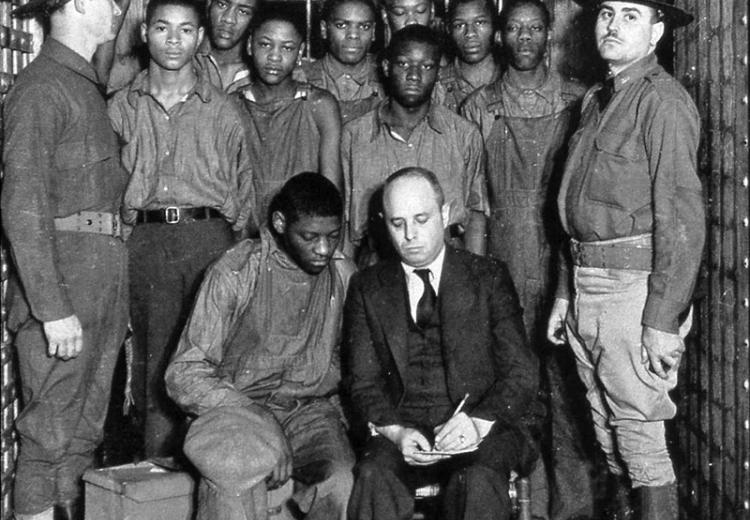To Kill A Mockingbird and the Scottsboro Boys Trial: Profiles in Courage

The Scottsboro Boys with their lawyer and guards, 1933.
In an August 1960 book review, The Atlantic Monthly’s Phoebe Adams described To Kill A Mockingbird as “sugar-water served with humor ...”
Sugar-water? Far from it.
Lesson One asks students to read To Kill A Mockingbird carefully with an eye for all instances and manifestations of courage, but particularly those of moral courage. Lesson Two also requires students to study select court transcripts and other primary source material from the second Scottsboro Boys Trial of 1933, a continuation of the first trial in which two young white women wrongfully accused nine African-American youths of rape.
Guiding Questions
How can literature be used to teach history?
What was the state of civil rights in the United States between the Scottsboro Trial and the publication of To Kill A Mockingbird?
Why do these experiences and stories remain relevant today?
Learning Objectives
Analyze the historical and cultural context of the Scottsboro Trial and the publication of To Kill A Mockingbird.
Compare fictionalized depictions of racism and the judicial system with historical events during the Jim Crow era.
Evaluate the short and long term cultural and political significance of the Scottsboro Trial and To Kill A Mockingbird.
